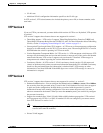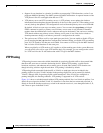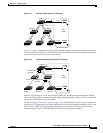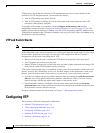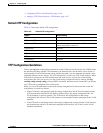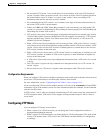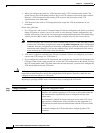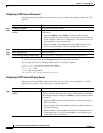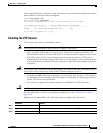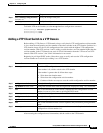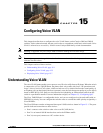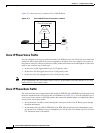
14-13
Catalyst 2960 and 2960-S Switch Software Configuration Guide
OL-8603-09
Chapter 14 Configuring VTP
Configuring VTP
When you configure a domain name, it cannot be removed; you can only reassign a switch to a different
domain.
To return a switch in another mode to VTP server mode, use the no vtp mode global configuration
command. To return the switch to a no-password state, use the no vtp password global configuration
command.
This example shows how to configure the switch as a VTP server with the domain name eng_group and
the password mypassword:
Switch(config)# vtp domain eng_group
Setting VTP domain name to eng_group.
Switch(config)# vtp mode server
Setting device to VTP Server mode for VLANS.
Switch(config)# vtp password mypassword
Setting device VLAN database password to mypassword.
Switch(config)# end
Step 3
vtp mode {client | server |
transparent | off} {vlan | mst |
unknown}
Configure the switch for VTP mode (client, server, transparent or off).
(Optional) Configure the database:
• vlan—the VLAN database is the default if none are configured.
• mst—the multiple spanning tree (MST) database.
• unknown—an unknown database type.
Step 4
vtp password password (Optional) Set the password for the VTP domain. The password can be 8 to
64 characters. If you configure a VTP password, the VTP domain does not
function properly if you do not assign the same password to each switch in
the domain.
See the “Configuring a VTP Version 3 Password” section on page 14-14 for
options available with VTP version 3.
Step 5
end Return to privileged EXEC mode.
Step 6
show vtp status Verify your entries in the VTP Operating Mode and the VTP Domain Name
fields of the display.
Step 7
copy running-config startup-config (Optional) Save the configuration in the startup configuration file.
Note Only VTP mode and domain name are saved in the switch running
configuration and can be copied to the startup configuration file.
Command Purpose



